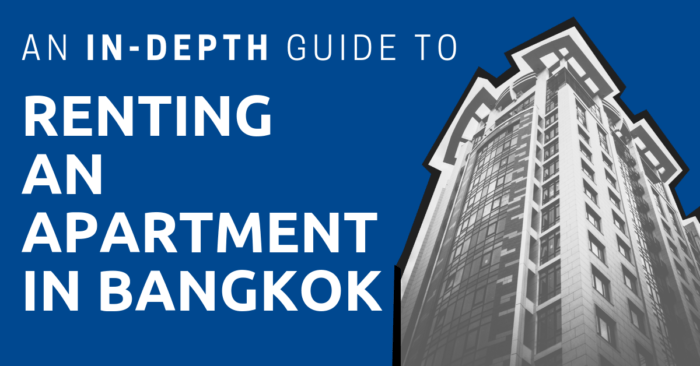
Before I moved to Bangkok, I looked up some places to live online.
I thought it would be easy since the Thailand property market is booming. There are so many options you will come across with a quick Google search.
It didn’t take me long to come across an apartment that looked absolutely stunning. But when I visited the place, it was actually a dump.
Pictures of the bedrooms had somehow hidden the fact that there were no windows.
In the end, it took me more than two weeks to find a good place.
This guide to renting in Bangkok was written to help you cut that two week-long search down to two days.
Whether you’re a first-time expat or just wondering if you can find a better deal than you already have, this should make things significantly easier.
"*" indicates required fields
Disclaimer: This article may include links to products or services offered by ExpatDen’s partners, which give us commissions when you click on them. Although this may influence how they appear in the text, we only recommend solutions that we would use in your situation. Read more in our Advertising Disclosure.
Contents
- Things to Keep in Mind When Looking for a Rental
- How Much Does It Cost to Rent an Apartment in Bangkok?
Things to Keep in Mind When Looking for a Rental
Before you start looking for an apartment in Bangkok you should know that apartment hunts don’t work here like they do back home.
Below are some of the most important things for you to consider.
Traffic and Weather
Traffic jams and hot, humid weather make traveling around Bangkok a slow and often wet experience.
You probably want to avoid getting around by car, bus, or bicycle during the day. Two-hour commutes or reaching your destination drenched in sweat or rain, depending on the season, is never fun.
This pretty much limits you to the BTS and MRT, boats, motorcycle taxis, and the odd road.
Because of the traffic and weather, I rent condos where I can easily walk to work in hot weather, or condos I can reach by the MRT or BTS without changing lines.
Tourism and Nightlife
Tourists tend to drive the prices of condos up and the quality of surrounding areas down.
Areas with a lot of hotels or tourist sites are filled with souvenir stands and mediocre, overpriced restaurants.
Unless you have a daily need for nightlife, stay a street or two away from tourist epicenters like central Surawong Road, Silom Road, and the Nana BTS area between Sukhumvit Soi 3 and 11.
Even if you’re a night owl yourself, you want to avoid being right next door to bars. Otherwise, you may have noise problems 24 hours a day for the duration of your 12-month lease.
If you’re not sure about an area, you can always stay there for a weekend to see what it’s like.
Location
One of the most important things to consider when renting is location.
Lower Sukhumvit (Asoke to Ekkamai), Sathorn, and Silom tend to pop up first when asking around for areas where expats like to live in Bangkok.
These business districts are full of office buildings and serviced offices, making apartments and condos to be more expensive than other areas in Bangkok.
Nowadays, you can get the best value for your money in other parts of the city like On Nut, Phra Khanong, and Rachadaphisek.
Easy Commutes
The length of your daily commutes is something you want to keep in mind when renting a place in Bangkok.
My advice would be to pick a place within walking distance from work or near the MRT or BTS.
Use Google Maps to check public transportation at the time you plan to arrive and leave work. It shows fairly accurate travel times for cars and the MRT and BTS.
Note that Google doesn’t include traffic jams when showing travel duration for buses, making them appear to be a lot faster than taxis.
Google also doesn’t combine public transportation with motorcycle taxis, so you might have to do a few runs to find out how long it’ll take you to get to work.
Language Barriers
Many apartment ads in Thailand are in Thai. And many landlords can only speak Thai.
This also means some places will only have Thai-language leases or crude English versions produced with Google Translate.
For this kind of property, there will be a language barrier. But with that, you tend to get a good deal.
For ease of communication, you can use a real estate agent. Many of them deal with expats specifically and can speak English fluently.
However, hassle-free communication and easy interaction in English come at a surcharge. The deal you get might not be as good as dealing directly with a Thai landlord or with a Thai agent.
TM30
When you stay in Thailand, a property owner needs to inform the immigration office about your stay. This report is known as TM30.
If you stay in a hotel, a hotel will do that. If you rent a place, a landlord needs to do it for you.
However, this regulation isn’t known to all Thai landlords. If they rarely deal with expats, they may not be aware of it at all.
Even if they are aware, there is a chance that you need to do it yourself by asking your landlord for the rental contract, house registration copies, and ID copies.
Read our article on how to file TM30 for more information.
How Much Does It Cost to Rent an Apartment in Bangkok?
Rental prices in Bangkok range from 4,000 baht a month for a dorm-like room to 500,000 baht a month for a penthouse duplex in a trendy neighborhood.
In general, many single expats pay around 15,000 baht a month for rent, not including utilities for a 30-40 square-meter studio or 1-bedroom condo inside the city that’s close to a BTS station or MRT station.
Couples or those needing more space will be paying usually around 35,000 a month for a 2-bedroom.
You tend to get a lot of bang for your buck in Bangkok, since rentals usually come with swimming pools, saunas, gyms, and a security guard.
If you rent a place without a swimming pool or gym, rent will be lower.
Prices vary depending on a lot of factors, including, but not limited to:
- length of lease
- quality of the neighborhood
- proximity to an MRT or BTS station
- extra facilities
- square meterage
- condition and age of the building
I’ve listed some prices in the Apartment Types section to at least give you a rough guideline on what to expect.
If you are curious about the general cost of living in Thailand, I’ve listed my expenses as an entrepreneur in Bangkok, and our editor has listed his cost of living for a family of four.
But everyone has their own lifestyle that can be a lot more or a lot less.
Rental Types
You have many types of options when it comes to renting an apartment in Bangkok.
Studios
Many single people in Bangkok choose to rent studios. You will aso find couples or families crammed into studios, especially in lower income areas like Din Daeng.
Bare Bones
While cheaper offers exist, realistically, prices start at around 3,000 baht a month for a 25-square-meter room.
At that price, you might get a squatter toilet that you have to flush with a water bucket and cook food with an electric stove and rice cooker that you bought yourself.
These cheap studios are usually furnished to a bare minimum, if at all.
At 7,000 baht a month you can get a newer place with basic furnishings, standard bathrooms, and a possible security guard at the building entrance.
If you opt for an area of town that’s not connected to the BTS or MRT, this price can get you a 45-square-meter place with a gym and parking.
When looking at these bare bones offers, you’re usually dealing with the apartment owners directly.
The commissions paid—if any—don’t attract a lot of agents.
Comfortable
A more comfortable rental starts around 9,000 baht a month and comes with slightly dated furniture.
Facilities of the building can include a swimming pool and a gym.
You can take a motorcycle to an MRT or BTS station or even walk to one if you don’t mind the heat.
If you want something that was built recently and is within 200 meters from a BTS or MRT station, increase that price to at least 12,000 baht a month.
Apartments
You can easily find apartments in areas closer to the BTS and MRT, reflecting people’s preference when it comes to commuting.
If you’re looking for something very spacious or cheap, you’ll have to head to some older buildings that were built pre-BTS and rent used to be a lot lower.
The descriptions and prices I list below refer to apartments that are larger than 50 square meters.
Old Style Apartments
You can find an older apartment that’s at least a few hundred meters away from the MRT for 16,000 baht a month.
The upside is that it offers a lot of space for your budget. But sometimes these apartments come with limited or no facilities.
Depending on the specific offer, the air conditioner might be old, resulting in a higher electric bill.
These apartments are a great choice if you need the space for indoor workouts, live with multiple people, or host the occasional dinner party.
Modern Condominium
You can find a modern condominium starting at 18,000 baht a month.
These modern spaces are small, but they’re nicely furnished in new buildings near the BTS or MRT.
Short-term rentals are more likely to be offered, since occupancy rates don’t tend to be as high.
You’ll pay a lot for the amount of space you’re getting, but these condos are convenient.
Serviced and Executive Apartments
The definition of a serviced or executive apartment varies a bit in Bangkok.
A large part seems to be based on whatever the copywriter of the website thought sounded good.
As a general rule of thumb, these are places that can be rented monthly, are nicely furnished and offer regular cleaning—although that may be extra.
Some places even offer room service by an in-house or nearby restaurant.
Serviced apartments start at 22,000 baht a month and go up to 450,000 baht a month, though most of them range from 35,000 baht to 75,000 baht.
Luxury Condo
Bangkok isn’t short on high-end accommodations.
Starting from 600 baht to 1,200 baht per square meter, you get everything from 40 to 400 square meters of space.
Aside from high-end places like luxury hotels, many condo buildings have duplexes or penthouses on the top.
Houses and Townhouses
Two often overlooked options for renters in Bangkok are houses and townhouses.
Surprisingly, these can work out to be cheaper than apartments. You can also turn it into a home office. Houses in Bangkok have their own pros and cons.
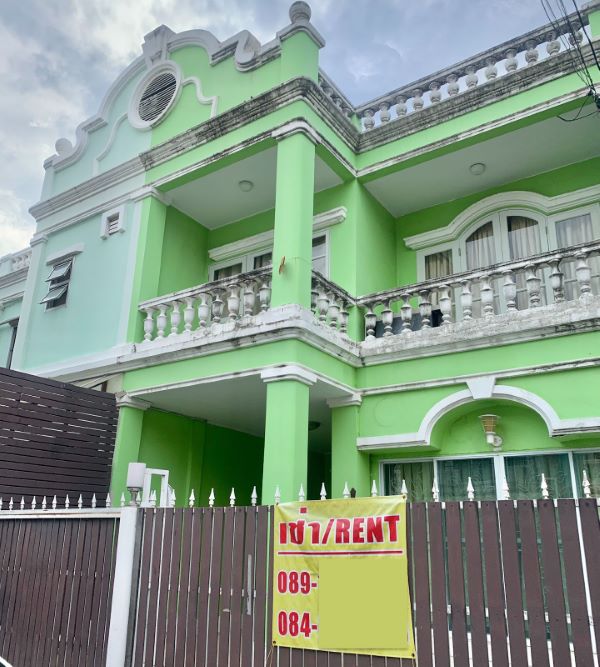
While you get more space in a house, it might not be as convenient as a condo. For example, houses are often in gated communities known as “muu baan” which can be farther from the MRT or BTS.
And if you find a house outside of a muu baan, like a renovated shophouse, you will be exposed to a lot of street noise and there will be no security guard or building management to help with problems and package collection.
You can check out our dedicated guide to renting houses in Thailand for more info.
Finding Apartments
Depending on your needs, you may find a rental property in Bangkok in one or two days. But sometimes it can take you months.
Whether you use an agent, walk, or search online, the price you pay for rental property is still roughly the same.
Using an agent won’t drastically increase prices. Walking in won’t drastically decrease prices. And searching online won’t drastically increase or decrease prices.
This is because the rental industry in Thailand is competitive. It’s possible to negotiate the price down by 40% if you know how to do it.
Walking Around
Hitting the streets and looking for one of the many condos and apartments available in Bangkok is hit or miss.
Walking helps you experience the area you want to live in. You’ll know after a stroll through a neighborhood whether or not you want to live there.
And when walking, you can also pop into an apartment and talk directly to the property manager or staff. But keep in mind not all staff can speak English.
You can also often look at a few rooms without an appointment.
I only know a few people who found rental properties by walking into buildings.
Many people who spend days walking in an area of their choice still come up empty handed.
Using Real Estate Agents
Real estate agents make your life easier by doing all the hard work.
After you give them your budget, requirements, and preferred location, they will give you a list of properties they have on hand.
If you’re in Thailand, they can take you to the apartment. If they find several in the same area, you can quickly and conveniently view a bunch of apartments in one day.
Each real estate agent in Thailand has their own database of listings. So, if they don’t have any properties you want, you should find other agents.
Real Estate Agents in Thailand
Find Thai Space
Find Thai Space is a real estate agency in Bangkok that can help you find a place to buy or rent throughout the capital of Thailand.
Contact Find Thai SpaceOften a real estate agent will not want to go the extra mile of seeking out places for you. They will simply show you things already on their list of clients.
It’s free for you to use real estate agents as they get their commission from the landlord, which is usually one-month rent per one-year contract.
To use a real estate agent, here’re the two main requirements:
- Most agents prefer to work with a minimum one-year contract. However, some may still be willing to work with a six-month contract.
- Your budget should be at least 10,000 baht per month.
Note that some agents may ask about your visa and work permit since they just want to make sure that you can rent in the long-term.
In Thailand, there’s no license requirement so anyone can be a real estate agent. Therefore, it’s easy to find real estate agents here. You can find them everywhere from facebook groups to property websites and networking events.
If you want to get in touch with our recommended professional agents, we have a list on this page.
A main disadvantage of using a real estate agent is that you lose negotiating power. This means it’s hard to get the best deal when using an agent.
Looking Online
You can use rental sites to get a rough idea on prices and options.
Big properties websites in Thailand are ddproperty, Hipflat, Craigslist, and Baht&Sold. They provide prices, pictures, contact details, and area information. But a lot of listings from these sites are posted by real estate agents.
You can search and compare rentals on each website without having to go to the building.
Alternatively, you can ask any expat in Thailand facebook group for a recommendation.
But you should be wary of any information you get online. It could be misleading.
Never sign a lease or book a rental property online before seeing it in person.
For a short-term rental, you can look at Airbnb. It’s cheap. And you can find thousands of properties there.
If you want to use Airbnb, make sure to stay there for over 30 days for legal reasons.
Find a Place to Rent for Families
For families moving to Thailand, things can be a bit tricky.
You need to have a big space and it shouldn’t be far from your kids’ school as well as your workplace.
For this kind of place inside a city area, you should expect to pay at least 30,000 baht a month. Sometimes, it can be easily over 50,000 baht if it’s inside a business area like Asok.
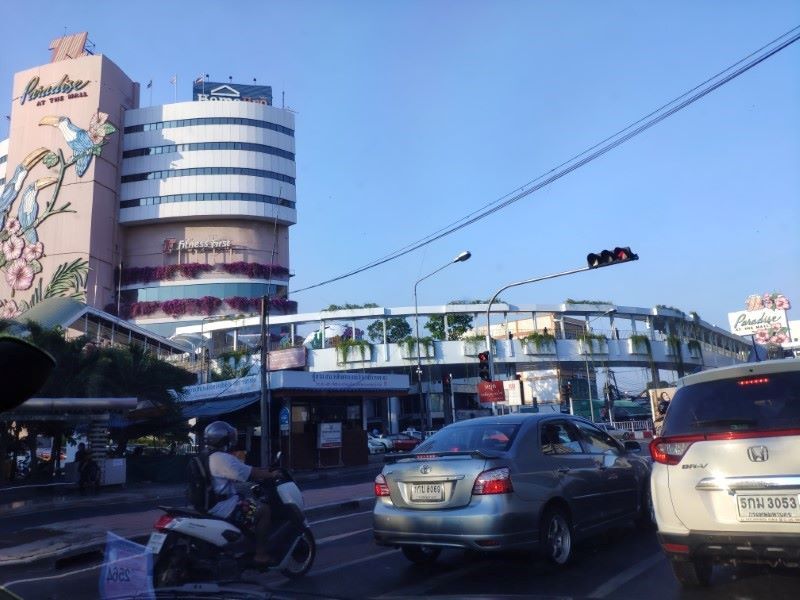
Alternatively, you can pick a place that’s outside the city for that extra bit of space but still has access to tollways, preferably without having to do a u-turn.
In general, Google Maps is a great resource to check out commuting times during rush hour.
Select directions from your home to work or home to your son or daughter’s school at the time you plan to arrive and leave.
Finding a Place that’s Wheelchair Accessible
If you need to rent an apartment that is wheelchair accessible in Thailand you’ll have to do some digging.
Although most Thailand rental websites won’t list them explicitly, most newer buildings will be wheelchair accessible.
Either way, you should personally check nearby areas to really find out if it’s good for a wheelchair or not. This is because Thailand isn’t wheelchair friendly.
Roads can be crude and there might be trees or electric poles right in the middle of the footpath, which make it hard for wheelchair users to navigate.
You can also use the Google Street View feature on Google Maps to check exactly what the nearby area looks like. Make sure your real estate agent knows about your specific accessibility needs.
Finding a Pet Friendly Condo
If you have a pet in Thailand, you might find yourself in another tricky situation.
Not a lot of apartments in Thailand allow pets. Even if they do, they will only allow a small breed.
Your best bet is to rent a house or low-rise older buildings.
A barrier to your home hunting is that most Thailand real estate websites do not clearly say whether a building is pet-friendly or not. This is where using real estate agents is a good, fast, free option.
You can find out more from our exclusive content on how to find accommodations that allow pets in Thailand.
Rental Leases in Thailand
The language in the leases you encounter in Thailand has the potential to raise the hair on the back of your neck.
I’ve seen everything from “owner can raise the rent anytime” to leases that said I could get kicked out for violating the lease if I “created a nuisance for neighbors.”
Other contracts were entirely in Thai.
Thailand doesn’t have a Landlord Tenant Act, which means that you won’t find the tenant rights you’re used to back home in leases in Thailand.
Websites like Slice of Thai provide lease samples. If you’re in a position to ask your landlord to use one of them, they might be worth a look.
At the very least it gives you an idea of things you can check in your own lease to see if they are specified at all, and if so, in whose favor.
While you might not be able to use your own contract template, your landlord might be willing to cross out or alter certain sections in theirs.
Depending on the landlord, he or she might have just pulled one from the internet as well. There are certain points you should be careful of before signing a lease.
If you would like to play it safe with your lease, you can ask a lawyer to review it for you.
Law Firms in Thailand
Banchee Legal House

A law firm in Bangkok with a broad range of legal and business services to offer their clients.
Contact Banchee Legal HouseFRANK Legal & Tax (Bangkok)

FRANK Legal & Tax is a boutique law firm with locations in Bangkok and Phuket. It specializes in real estate, corporate, and commercial laws.
Contact FRANK Legal & TaxContract Duration
The standard rental length in Bangkok is 12 months.
It’s possible to negotiate for a shorter term if you get in touch with the owners directly. They might be willing to accept a six-month lease.
For leases less than six months, you usually have to find a condo where all units are held by a single company. Staff at these places might let you sign shorter leases.
You will pay a premium, but this tends to be the only way to make it work.
It might be easier to just rent a serviced apartment or use Airbnb. Read our guide to finding a short-term rental in Bangkok for more information.
If you’re looking for a lease that’s longer than three years, the lease has to be registered at the Land Department.
Landlords might be reluctant to give you a three-year lease since it results in extra fees for them and they’ll need a court order to cancel the lease.
In addition, if they didn’t pay taxes on rental income in the past, this might get them into trouble.
The maximum registered lease term is 30 years.
At that point though, there’s a whole different set of problems that go beyond the scope of this article.
Furniture
Many condos in Bangkok are fully furnished with the basics such as table, sofa, closets, bed, and air conditioners.
Some may also come with a refrigerator, microwave, and kitchenware.
Maintenance and Repairs
It’s important to state in the lease who pays for minor repairs and maintenance, whether it’s a broken air conditioner, problems with the stove, or termite damage.
These costs can add up to 10% of your total rent and you should have an understanding—ideally in the lease—of who pays for such repairs.
Deposits
Similar to renting an office, a standard deposit in Thailand is two months.
In addition, you have to pay rent one month’s rent in advance. So you must be prepared with at least 3 month’s worth of rent before you can move in.
In most cases, the deposit can’t be used to pay the last month(s) rent.
But in other cases, property managers will let you pay the last month’s rent with your deposit if they already inspected the rental for damage.
Landlords must return your deposit if there’s no damage but they don’t have to pay interest on it. It is possible to get 100% of your deposit back, despite the horror stories you will inevitably hear.
If your landlord owns five or more units, houses, or townhouses, they must return your deposit within seven days.
Otherwise, it usually takes two weeks to get your deposit back.
Dealing with a Landlord
Many landlords in Bangkok are familiar with renting a place to expats and are quite easy to deal with.
However, like other countries, there are landlords that are challenging to deal with.
My approach when I first arrived was to find owners and management that appear to be easy to work with.
I figured as long as they have the right attitude, minor misunderstandings caused by a language barrier shouldn’t be much of an issue.
As far as I can tell, the strategy worked out well.
Rental Disputes
The single most common disputes tenants have with landlords are over deposits.
I’ve never had any problems getting my deposit back. But I heard of friends having problems getting theirs back.
One friend of mine had a landlord who wanted to keep 10,000 baht out of his 20,000 baht deposit for supposed water damage in the kitchen.
He argued that it was normal wear and tear.
Personally, I think the fact that he moved out on short notice might have contributed to the landlord holding half of his deposit.
In the end, he involved a Thai friend to help negotiate that down to 5,000 baht—a lot cheaper than involving a lawyer.
The best way to get your deposit back is to take pictures of furniture and spaces, keep good relationships with landlords, and treat the interior well.
If you rent from a private owner you have a better chance of getting your deposit back in full if you maintain the rental.
If you rent from a property manager, it’s rare that you’re going to get your deposit back in full.
They almost always take some of your deposit for curtain and rug cleaning, painting, and cleaning the room.
You can save some money by doing some touch-up painting yourself.
If you’re friendly with the maintenance team you can ask them for a small bucket of the paint. Since they mostly use one universal color, they always have some on hand.
To get on the maintenance team’s good side in advance, throw them a tip every Thai New Year (Songkran) holiday. They won’t forget you later on.
If you can’t get a hold of your maintenance team, peel a piece of paint from the room and take it to HomePro. They’ll colour match it for you.
In the end, accept that there’s a good chance of not getting your deposit back in full, even if you do everything correctly.
Deposits aside and as long as payments arrive on time, I’ve not had problems with any commercial or private landlord while I lived here.
If your deposit doesn’t get returned, you can reach out to a lawyer we recommend or contact the Foundation for Consumers.
Their staff speak limited English, so involving a Thai speaker can be helpful.
However, my experience is that a soft approach like negotiating a partial return ends up being much faster and cheaper.
The one thing you probably don’t want to do is to publicly shame your landlord.
Libel and slander are criminal and civil offenses in Thailand and once you get sued, you might find it hard to leave the country.
At this point, it’s a good idea to take a look at how much the lost deposit is in percentage of overall rent you paid.
If you lose one month of deposit for a place you stayed in for two years, that’s 4% of your total rent cost and might not be worth the hassle.
While your deposit is at risk, things look better for your belongings.
Landlords aren’t allowed to take appliances and furniture as compensation for unpaid rent and damages.
If the lease gets canceled, the landlord can call the police to forcibly remove you if you refuse to leave after the lease is up.
Utilities
The highest costing utility is electricity.
Some landlords pass on the official electricity bill from the MEA to you, which is the ideal situation. The government electricity rate hovers between 4 and 5 baht per unit.
Others charge you an inflated rate that you pay to them, which is not ideal. Some condo management have been reported to change up to 8 baht per unit.
If you use the air conditioner, monthly bills tend to be around 2,200 baht or more per bedroom, depending on how efficient the air conditioner is.
Without air conditioning, your bill could be less than 700 baht per month.
Some people with older air conditioning units and bigger homes pay up to 10,000 Baht per month.
Costs for water are minuscule in Bangkok. Government water is 7 baht per unit in Bangkok but less scrupulous landlords can inflate that as high as 25 baht per unit.
Your water bills should not be more than a couple of hundred baht per month, and if you see them over 500, then something is wrong.
Phone and Internet
When you rent a condo in Bangkok, it is most likely that you need to install an internet connection yourself.
It’s easy to do. You just need to show a rental contract to an internet provider. However, you should check with the landlord if this is possible and if it’ll incur any additional costs before you sign the lease.
Internet in Bangkok is very fast and affordable. You can get an internet speed of at least 500 Mbps for a flat fee of 600 baht.
Moving Out Notice
The biggest point of contention I saw, aside from deposits, was the advance notice before moving out.
The landlord of our office expected a 30-day notice for a non-extension of lease—even though it wasn’t specified in the rental lease.
My advice is to inform your landlord earlier rather than later to give them a chance to find a new tenant.
Not having the place stand empty is also a good way to keep the landlord happy and with a new deposit in their hands, they’re less hesitant to return yours.
Now, on to You
This article includes everything you need to know about renting in Bangkok.
If you want something more in-depth, check out our premium subscription.
You’ll discover hidden gems in Bangkok, how to save 40% on rent, and how to avoid common mistakes that cost expats thousands of dollars a year.
Related Articles



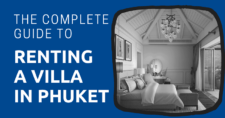
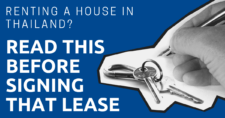

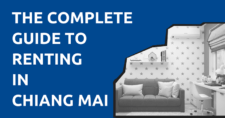
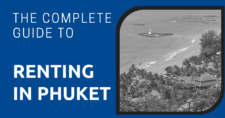
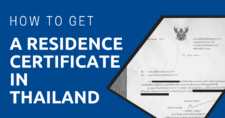
I read some comments here about incorrect photos of apartments for rent and feel sorry for them. I am owners of U dlight Rattanthibeth Nonthaburi condos closed to purple and pink MRT LINES rented only 7000 B/M and post all real photos that do not hide any fake things of the estate and want to find long stay expats for 3-12 months, why? As the owner and renovated condos new for the tenants but so afraid that damage may occurred after the 3-12 months stay that exceed the 2 months insured money collected when expansive firstly moved in. How can I find good tenants? I feel tired and look forward to having good tenants as well as my regular activity as a good owner.
I have been to Bangkok many times, and I know your area of the city. I am retired from work and am considering getting an OA visa for Thailand. That form of visa is initially good only for 3 months during which, while in Thailand, I can request it to be extended to 12 months. If that is approved, I understand I can ask for a renewal every 12 months after that. Are you flexible in accepting someone for 3 months who is likely to be able to stay longer?
Regarding your question: I suggest that you consider specializing in renting to retirees rather than expats who are working. You should ask to see proof of a pension that is received every month. Almost all retired Europeans can show this and most Americans who are retired can show you their Social Security pension coming monthly into their bank (printed in statements they can show you). Most American retirees can also show you records of either a company pension also coming into their checking account or of a retirement investment account–401(k), 403(b), or IRA–which provides further pot of money from which they can make monthly withdrawals beyond Social Security. This is the best way to get long-term renters or at least renters of an age that they most likely will take care of the property rather than damaging it. Never rent to a young person without a job (no matter how much money they seem to have). They are more likely to throw parties, leave after a short period of time, and/or damage your property.
Thanks for this precious information as well as your guidance.
Please get connected.
This article contains misleading information, the regulations were revised again November 2019 and came into effective 30th January 2020.
Thanks a lot for pointing out! Can you please give us a link to the news of this new regulations update? So that we can update the article accordingly.
There are two weekly Magazines that advertise rentals, houses and property for sale etc, any new paper stand in Bangkok has them, those two are full of rental places of all sort, get them and have Thai speaker read the rental sections, in my experience they are 50% cheaper than the one cater for foreigners or FARANGS, where ripping off Farangs is a fair game in Thailand. If you are going to sing a lease, make sure you get a Bilingual Lawyer to do it for you and go through it thoroughly. Make it clear to the owner that to stick to LAW and REGULATION as stipulated in the lease! And not to harass for more money etc.
Hi there! I’m just curious due to a recent situation one of my friends mentioned. Is rent due on the first or last day of the month in thailand, or is it ant given day as long as it’s set by you and the landlord? Or management company in this case since it was an apartment I believe
I usually just go by whatever it says in the rental contract. Every single one I’ve seen has spelled that out.
Thanks Kar this is very helpful
Thank you Karsten. This is very useful sharing.
Hi Karsten, what, in your opinion, is the best place to live in Bangkok?
I nowadays recommend people to check out Phra Khanong and On Nut as the first potential spots due to the value for money, central location and quality of life around there.
Any recommendations on “condo building where all units are held by a single company?”
It really depends which part of the city you want to stay in. I had good experience with Oriental Suite in Nathong 6 (between Thailand Cultural Center and Huay Khwang MRT stations), which is owned by one family. Usually the advantage of this setup is that maintenance and administration quality is better. Another option is to go with a branded condo building (like LPN, Sansiri, etc.) where units are held by individuals, but the maintenance quality is usually of a good standard.
Thanks. Any recommendations for inner Bangkok? Specifically for buildings owned by one individual or company?
I would assume you’ll find something suitable at every BTS/MRT stop, so it depends mostly on specific location as well as budget and type of accommodation you are seeking. I recommend posting the question in our Facebook group to get some broader input from people: https://www.facebook.com/groups/1070336769728582/
Thanks for the link, but it seems to be broken:
“Sorry, this content isn’t available right now
The link you followed may have expired, or the page may only be visible to an audience you’re not in.”
Ah okay – will have to invite you first. Can you send me a friend request please? I’ll then add you to the group: https://www.facebook.com/karstenaichholz
My husband and I are moving to Bangkok with our two dogs this winter. Aside all the worries and stress from flying them from the U.S, finding a nice place that accepts pets is another big challenge.
Thank you for your article. I’ve found some brilliant ideas while reading it.
lucy i am moving from cambodia with a very large dog any tips or places to recommenD?
Absolutely brilliant article. Thank you Karsten. The for rent web-sites very helpful (and google searches rarely produced any of them – although I probably used the wrong search terms).
Thanks :). As you can see from the budget beer isn’t a big item, but I won’t say no to a coffee 😉
[…] for a staff of 10 (if you’re looking for cheap office space, similar advice applies as when renting an apartment in Bangkok). Given the eternal traffic gridlock the affordability of rent in the city center is an important […]
Depends a little on the budget. For basic apartments, I’d go with 9apartment. Hipflat is going to be useful to track down open places, but you might have to look up owners on Prakard (or locally by walking around) to find short term rental opportunities. The other option is too look for serviced apartments (which start from 10k and go up to open ended) – a bit more expensive, but probably the most convenient option for rentals of less than 6 months.
Deine Texten sind verdammt gut geschrieben und anscheinend geforscht!
Vielen Dank fürs Teilen
Thanks 🙂
As always perfect information. What would you choose for 3 months stay, hipflat looks most encouraging.